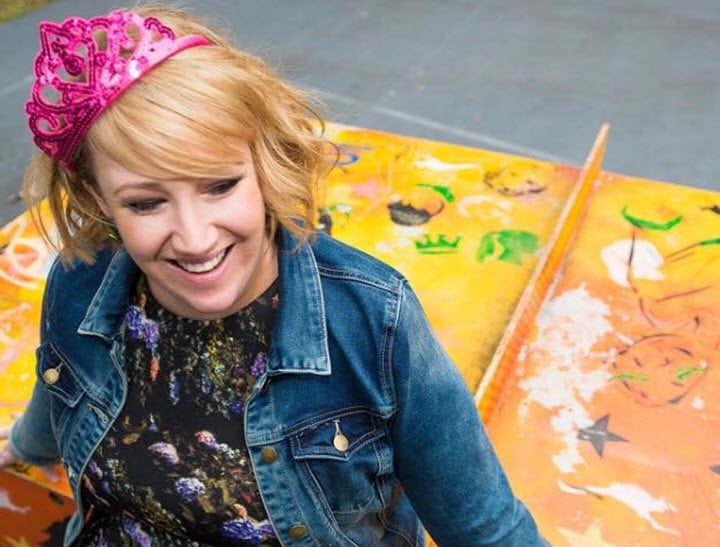
Rosie Waterland is a best-selling author. You should probably take her advice.
The Mamamia Women’s Network are launching the first ever MWN Writers’ Competition – to unearth the best online writing talent in the country.
MWN, together with HarperCollins Publishers is offering winners across several categories $1000 prize money, as well as an opportunity to have an ongoing publishing relationship with MWN, Australia’s premier women’s media company.
To give you some inspiration, our very own bestseller, Rosie Waterland, has shared some of her tips on how to write a book.
What are you waiting for? Apply here.
I took one month off work to write my first book, a memoir called The Anti-Cool Girl (*cough shameless plug buy it here cough*).
That month turned into seven. SEVEN MONTHS. And let me tell you something: A lot of that was spent hiding in a blanket fort drinking vodka, pretending that I didn’t have a book deadline.
I got there in the end (months late, my bad), but writing that book was one of the hardest things I’ve done in my life. And I feel like such an arsehole because I honestly went into it thinking it would be a total breeze. One of the selling points in my book proposal was, “Oh I work online and everything is so fast-paced there – I could probably knock this book out in a few weeks blah blah blah clueless naivety etc.”
So, given I have now published a memoir (*cough again buy it here cough*), and also that I’ve somehow managed to build a career in which I write almost exclusively about myself (ego much?), I’ve picked up a few little nuggets of advice when it comes to putting it all on the page:
1. Have a plan.
Signing a book deal is an incredible feeling. Dream accomplished! Then you remember you have to actually write a whole book. Then you sit down at your desk, open your laptop and stare at a blank word document for three weeks. When you have 90,000 words to write and you haven’t even written one, it’s crazy amounts of overwhelming. Mia Freedman gave me some great fucking advice: She told me to get a bunch of post-its, and on each one write the name of a story I wanted to tell (e.g. ‘getting first period’, ‘dad dying’ etc), then I put all the post-it notes up on a wall and had more of a clear picture of the shape the book was going to take. Something about taking things away from technology and looking at them visually really helps. Over the months, some post-its were scrapped, some were added, orders were changed, but just the act of putting them on the wall that first day helped me feel like it was at least a manageable task.





























































































